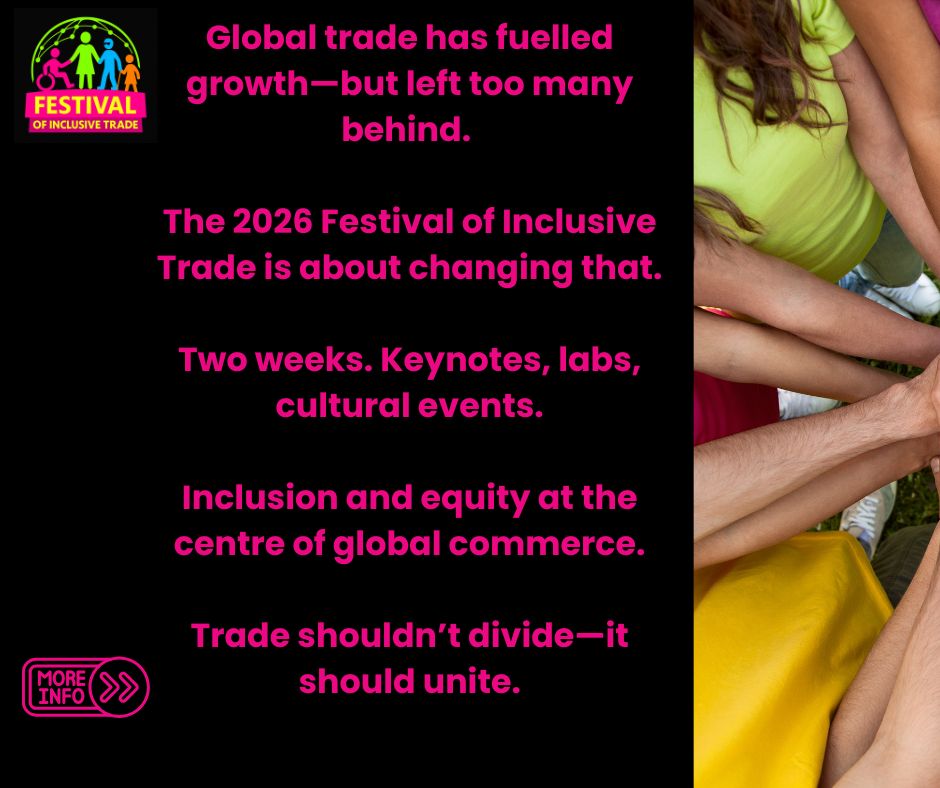Inclusive Trade Policy: Designing Systems for Equitable Outcomes

Trade isn’t just for the big players. Small and medium enterprises (SMEs) are the backbone of global economies—and the key to making trade truly inclusive. Yet, despite decades of globalisation, benefits of international trade often bypass small businesses, women entrepreneurs, Indigenous communities, and other historically underserved groups. It’s like throwing a party and forgetting to invite half the guests. Inclusive trade policy fixes that.
Why SMEs Need Inclusive Trade Policy
According to the World Trade Organization (WTO) 2024 World Trade Report, trade alone doesn’t level the playing field. Without domestic policies that support equitable participation, globalisation can widen inequality. SMEs face hurdles like complex regulations, lack of digital infrastructure, and limited access to international markets. Inclusive trade systems aim to tear down those barriers.
Tip for SMEs: Trade benefits don’t come knocking—you must invite them in.
Key Elements of Inclusive Trade for SMEs
1. Equitable Access to Opportunities
Exporting firms generally make higher profits and pay better wages—but only if they can get into the game in the first place. Policies targeting women-led businesses, minority-owned enterprises, and startups are crucial to ensure that every business gets a fair shot at international markets.
2. Digital Infrastructure and Connectivity
AI, e-commerce platforms, and digital trade tools can transform SME growth—but beware the digital divide. SMEs without access to fast internet or digital training risk being left behind while competitors ride the AI wave. Think of it as trying to win a race on roller skates while everyone else has turbo-charged shoes.
3. Support for MSMEs
Programs like India’s Authorized Economic Operator (AEO) scheme show how trusted trader initiatives can be adapted for smaller businesses. By giving MSMEs easier access to customs and export procedures, these policies turn small fish into global sharks.
4. Participatory Policy Design
Inclusive trade policies work best when SMEs are at the table. UNESCO’s Inclusive Policy Lab framework highlights stakeholder engagement as essential. If your business isn’t consulted, you might as well be a spectator at your own party.
Challenges for SMEs
Even the best-intentioned policies face hurdles: inconsistent regulations, insufficient funding, and lack of awareness among SMEs. But here’s the good news—these challenges can be overcome with the right policy mix, partnerships, and advocacy.
Join the Movement: Festival of Inclusive Trade 2026
The Global Trade Professionals Alliance (GTPA) is hosting the Festival of Inclusive Trade 2026, a two-week celebration of equitable trade:
· Week 1: Inclusive Trade in an Age of Economic Turbulence
· Week 2: Building New Alliances Through Trust, Morals & Mutual Respect
This is your chance, SMEs, to step up, share your experiences, and learn practical strategies to expand globally.
Who Should Join?
· Speakers: Share your SME trade success stories or insights into inclusive policies.
· Event Hosts: Help run sessions or workshops—bonus points if you bring snacks!
· Government Participants: Engage directly with SMEs and shape trade frameworks.
· Supporters & Partners: Amplify the festival and invest in equitable trade initiatives.
Call to Action: Don’t let your business miss out. Be part of the conversation, influence policy, and get practical tips to grow internationally. Express your interest here: Festival of Inclusive Trade 2026 Expression of Interest Form
Remember SMEs: Trade is a team sport. With inclusive policies and a little hustle, even the smallest players can score big on the global stage. Don’t just watch—participate!